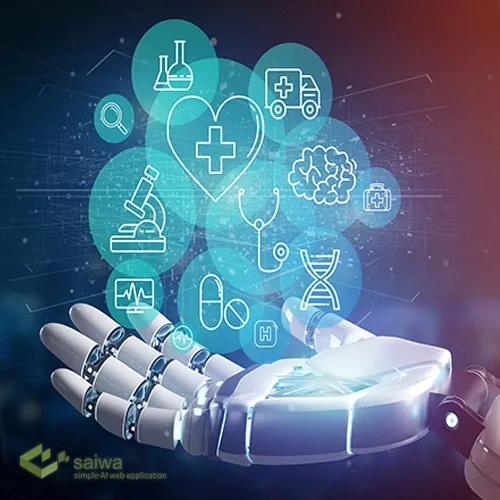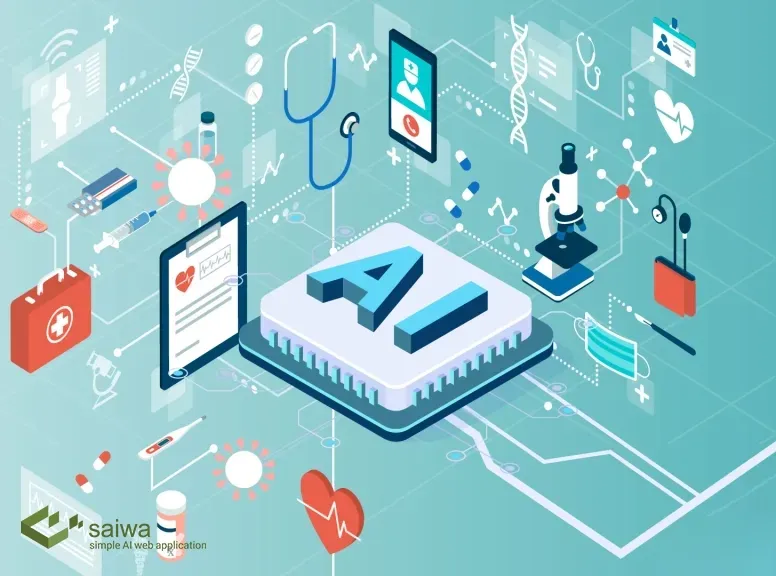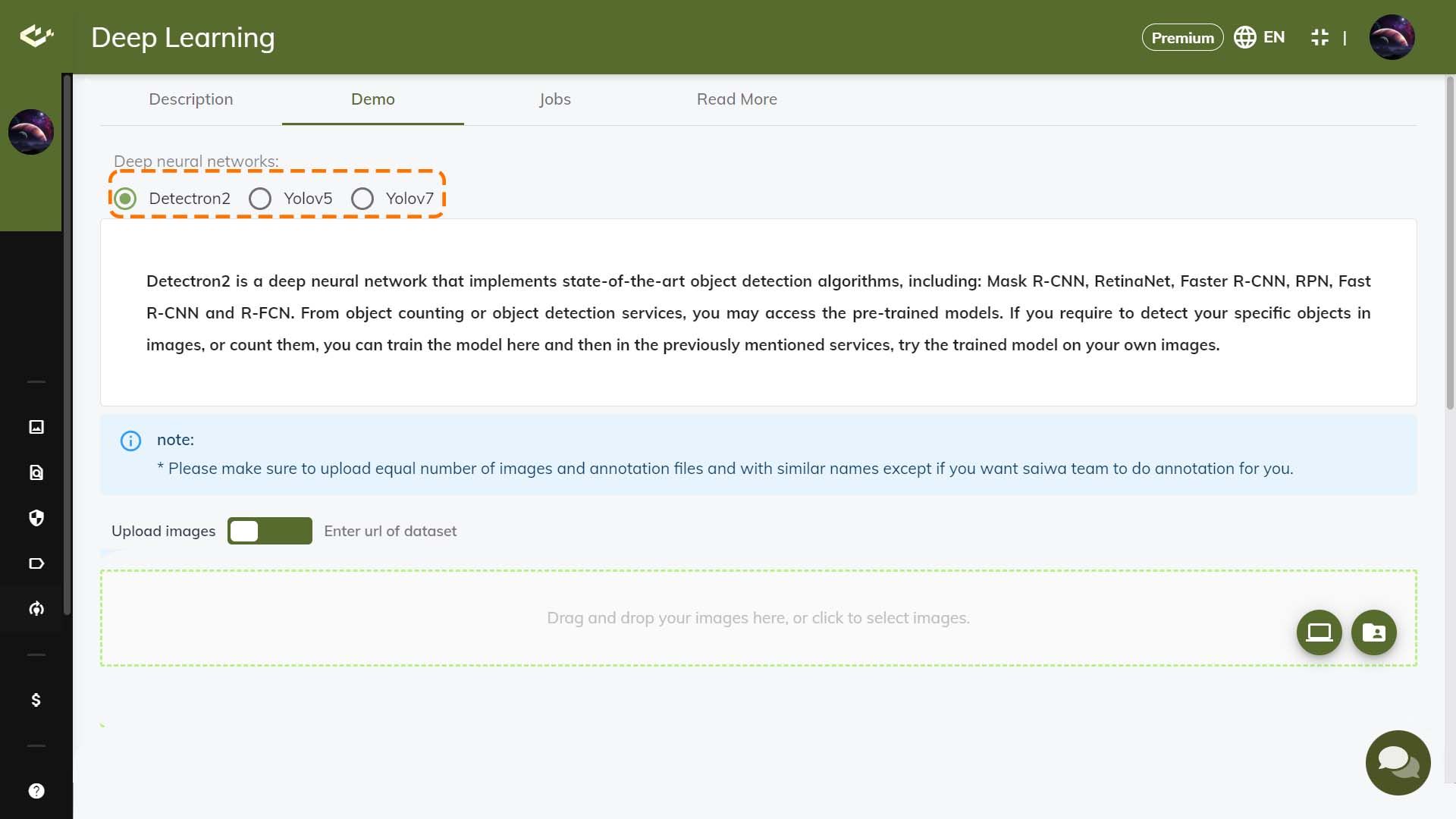
The Future of Healthcare | Revolutionizing AI in Healthcare
The complexity and amount of data in health care is increasing nowadays, and as a result, artificial intelligence is directly applied in this field. Healthcare providers and companies have employed artificial intelligence. The programs include diagnosis and treatment recommendations, patient participation and adherence, and administrative activities. You should know that artificial intelligence can do many things in this field better than humans, but various factors make implementing this technology more difficult. Also, ethical issues are considered in the use of AI in Healthcare.
Applications of AI in Healthcare

Artificial intelligence of AiaaS is being used in areas such as cancer, radiology, and other cases, and we hope that efficient and accurate inventions will emerge in the coming years to help this disease. Artificial intelligence is compared to traditional methods related to the analysis and clinical decision-making of the population. Artificial intelligence algorithms make the system more accurate because they have the ability to learn. As a result, it helps to gain unique human insights into the diversity of treatments, care processes, diagnoses, and patient outcomes.
Read more: Machine Learning in Telecom | From Data to Insights
How does AI work in healthcare?
Healthcare organizations collect vast volumes of data through photographs, clinical research studies, and medical claims. Artificial intelligence is able to analyze this data and produce insights that are generally only possible for humans. Artificial algorithms are trained to identify and label patterns in data, while NLP allows these patterns to be separated from each other. With DL, data is analyzed and interpreted by computers using knowledge. The impact of these tools is huge and important.
Read Also: Revolutionizing Animal Healthcare with Artificial Intelligence in Veterinary Medicine
AI technologies that are used in healthcare
Artificial intelligence uses different technologies or algorithms in the healthcare industry, which we will describe in the next part:
Machine learning
In health care, the main use of machine learning and machine learning as a service technology is precision medicine; that is, it predicts the best treatment protocols that are likely to be successful based on the patient's characteristics and different treatment fields.
Natural Language Processing
The main application of NLP includes creating, understanding, and classifying clinical documents and published research. It also helps to analyze the clinical notes of the structure body about patients and prepare reports.
Robotic
Various physical robots with artificial intelligence are active in performing various tasks in the healthcare sector. Currently, surgical robots help surgeons improve vision, suture and wounds, and other things. Some of the surgical procedures that use AI-assisted robotic surgery include gynecological surgery, obstetrical surgery, and head and neck surgery.
Rule-based expert systems
This system is based on a set of rules and is most commonly used in the commercial sector. It is also used in electronic health care with a set of rules in their systems. First, a set of rules is created by human experts and knowledge engineers, and then an easy-to-understand rule-based expert system is implemented. This set of rules is proportional to the domain of knowledge, i.e. if the knowledge changes, the set of rules can be complex and time-consuming.
RPA
In the healthcare industry, RPA (robotic process automation) is utilized to carry out repetitive operations like billing or updating patient information. This technology can also be used to extract data when combined with other technologies.
10 top applications of artificial intelligence in Healthcare in 2023

Artificial intelligence has many implications for various industries. One such industry is healthcare. This program was just a dream in the past, but the technology is being implemented in various sectors. In fact, this technology is already in our daily lives. In the following, we would like to express the applications of ai in healthcare.
Healthcare Analytics
The real term for ai in healthcare analytics is the study and interpretation of historical and industrial data to identify patterns, expand access, and even better control the progression of diseases. It covers a wide range of businesses and provides insights at macro and micro levels. It can improve the quality of patient care, clinical data, diagnostics, and business management.
Combined with business intelligence and visualization tools, healthcare analytics enables these functions to perform better by providing information that supports decisions and delivers actionable insights.
Medical Diagnostics
Medical diagnosis includes the identification of medical conditions through tests. Medical diagnoses are generally performed in laboratories and hospitals. For example, these can be allergy tests, blood analysis, and CT scan or MRI. The better and more effective the diagnosis process is, the sooner the right treatment can be chosen and started. Proper diagnostics can greatly contribute to the quality, affordability, and accessibility of health care by performing well.
Predictive Analytics
Predictive analytics is a subset of advanced analytics that predicts future outcomes using historical data combined with statistical modeling, data mining techniques, and machine learning. Companies use predictive analytics to find patterns in this data and to identify risks and opportunities. Predictive analytics is usually associated with big data and data science.
Medical Robots
Robots in the medical field are changing the way surgeries are performed, simplifying the disinfection process and allowing providers to focus on patient interaction and care. Medical robots are helping healthcare professionals provide smarter and more social processes for patients. In fact, medical robots can fill in the gaps and change how patients and caregivers recuperate.
Virtual Nursing Assistants
Virtual care assistants can collect information about the patient's health daily. As a result, the physician does not need to physically visit the patient to gather information about the patient's health. They can send health reports to the designated physician or surgeon. In addition to monitoring health status, virtual nurses have the ability to schedule appointments with doctors. With their help, healthcare professionals can save time and focus on patients' key vulnerabilities.
Challenges of using AI in healthcare

Currently, there are still limitations to the actual implementation of AI in healthcare. In addition to privacy challenges, artificial intelligence technology has other technical and methodological shortcomings, which we will address below:
Lack of quality medical data
Physicians need high-quality data for clinical and technical validation of artificial intelligence models. However, the fragmentation of medical data across multiple EHR and software platforms make it difficult to collect patient information and images to test artificial intelligence algorithms. Another limitation is that an organization's medical data may not be compatible with other platforms due to interoperability issues. Therefore, the healthcare sector must focus on medical data standardization techniques to increase the amount of data available for testing artificial intelligence systems.
Irrelevant measures of clinical performance
The gap in AI in healthcare is the discrepancy between clinical success, as proved in the actual world, and the technical precision of AI experiments. To overcome this challenge, developers and clinicians should work together to explore how artificial intelligence algorithms can improve patient care.
Research methodological problems
Most studies have been retrospective and based on patient's medical records. However, to understand the true value of Artificial Intelligence in disease diagnosis in real-world settings, clinicians must study current patients over time, which means prospective research. To increase confidence in research, doctors should monitor their patient's health by combining physical examinations with remote visits and remote monitoring technologies.
Revolutionize Healthcare with Deep Learning and Machine Learning at Saiwa
Experience the forefront of deep learning revolution at Saiwa. Our exceptional "Deep Learning service" empowers healthcare professionals and organizations with comprehensive solutions tailored to their specific needs. With our cutting-edge platform, we enable the training of neural networks using personalized datasets, ensuring optimal performance and unmatched accuracy. Trust Saiwa's expertise to unlock valuable insights and drive innovation in healthcare. Unleash the power of deep learning with us.
